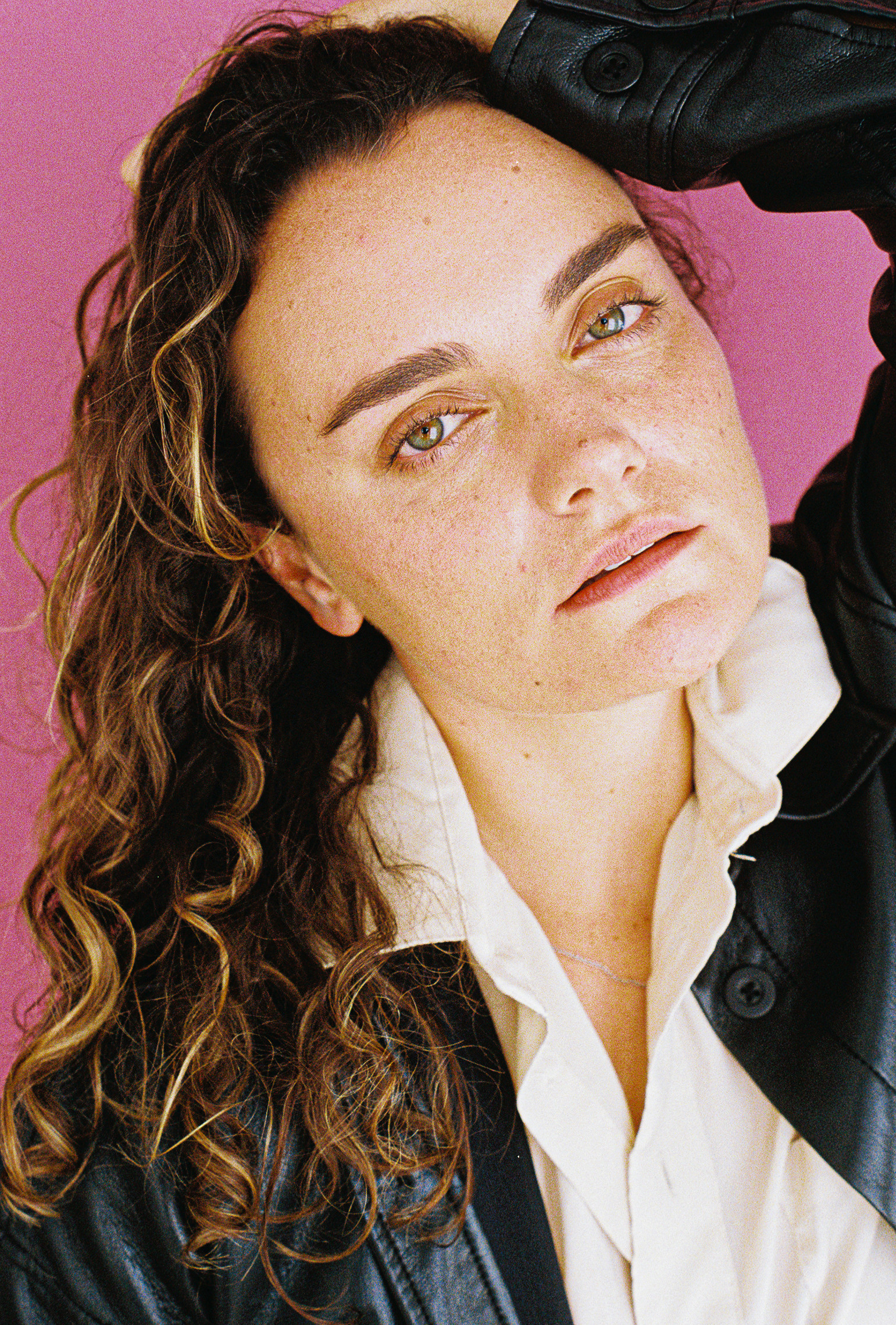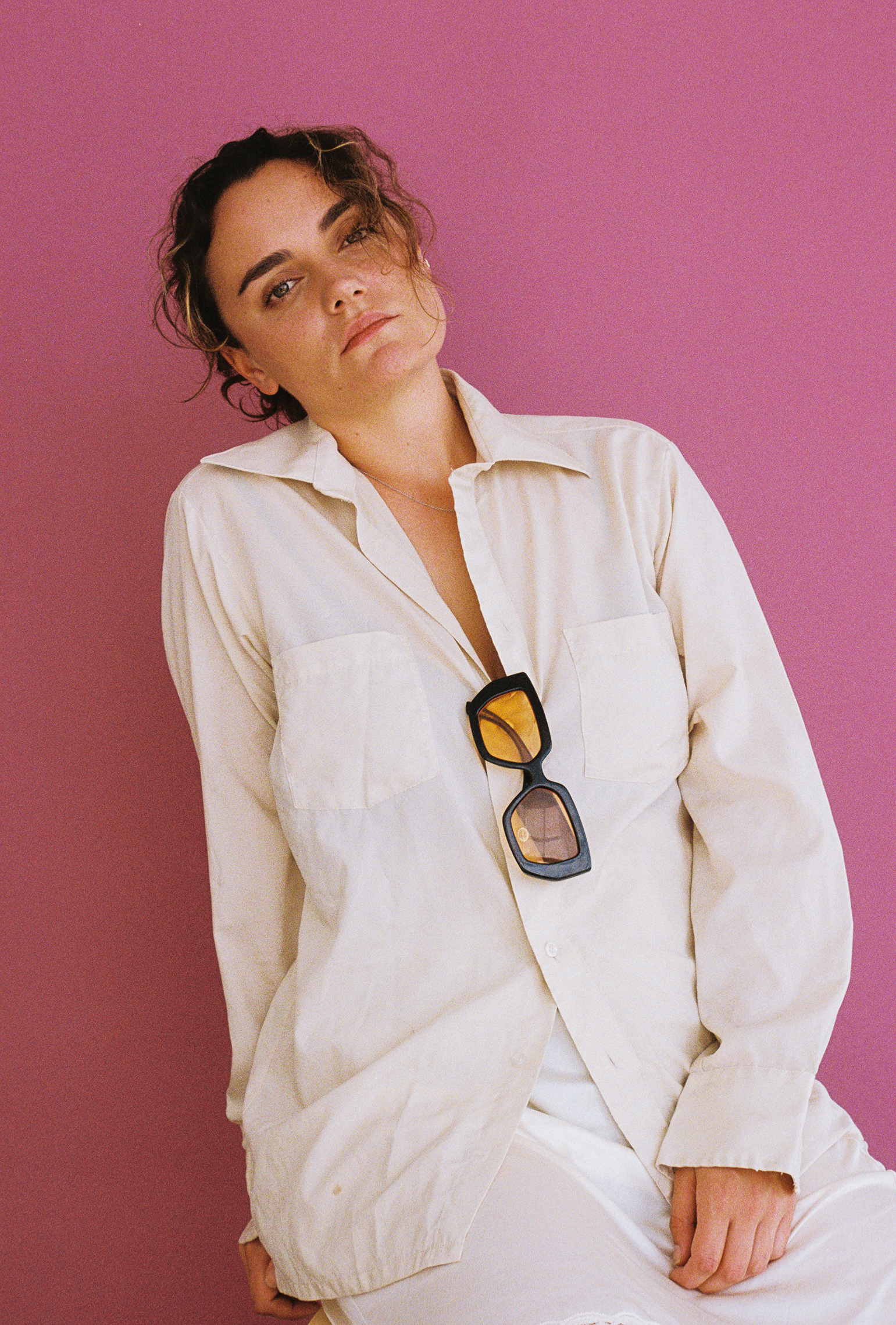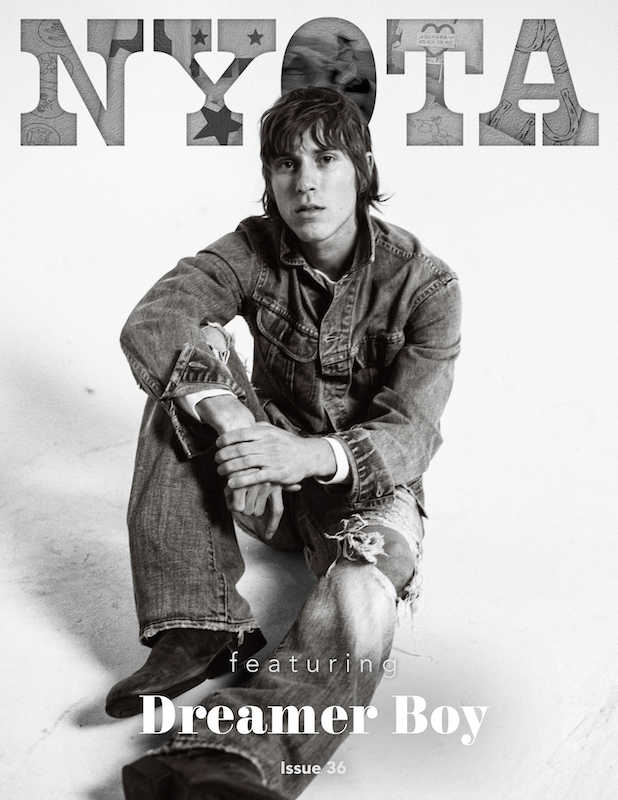Interview by Carol Wright | Photographer: Emily Pinto
Temme Scott prioritizes authenticity in her personal life and career. As a singer-songwriter, she creates music that is true to herself, and she prefers to perform in small, intimate venues to make a real connection with fans. Scott talked to NYOTA about living in LA, her evolving sound, and advice for aspiring musicians.

Did you grow up in a musical household? What led to your love of music?
I grew up not at all in a musical household. Nobody in my family, even extended family, I don’t think, has ever played music. There’s been some lore that there was a trombone player somewhere in there, but we don’t really know. I grew up in a totally non-musical, non-entertainment sort of household. I grew up in a very sports-oriented household. I grew up ski racing. My whole family is a skiing family. My mom and my sister both teach skiing. What really got me started on just singing and doing my music thing as a little kid was The Wizard of Oz and Annie, and I don’t know where the impetus for starting to sing came from. I think it just kind of started happening as I was learning to talk.
I remember a lot of singing down the ski racing hill, and I think my parents just kind of noticed like, ‘Oh, she seems to be really, really into this,’ but it was a lot of singing, you know, “Tomorrow” and “Maybe” from Annie, those were like the things that I was the most obsessed with, but I actually as a kid, I don’t even think I was that good at singing. Maybe as I got older, people started to recognize, or I started to recognize that there was something there, but I just did it because I liked it; it felt like a really fun form of self-expression. But when I got into my first band in high school, I’d had very, very little music experience. I took some piano lessons as a kid and didn’t really attach to it much. I always wanted to be like Avril Lavigne, Taylor Swift, or Michelle Branch. But I don’t know; music was just something that I took to fully on my own. It was not something that was taught or really offered to me purposefully, and now it’s become one of the biggest parts of my life. I feel super lucky that I have a community of musicians now that I can relate to and play with and everything. And my family is super supportive; they’re just tone-deaf, probably.
Is working on music therapeutic for you?
Yeah, for sure. When I started writing songs, I realized there was a channel through which I could express myself that talking didn’t satiate, and I think that’s why most people take to songwriting because it feels like a way to get it out without having to really say it. When I’m just talking or in a conversation, I can easily get caught up in my head about what I’m saying and if it makes sense. In music, it’s fun, and sometimes it’s just as difficult to get what you need to say into a song, but I think because it’s open for interpretation for most people, I’m not as worried about it making perfect sense. Accepting that level of uncertainty in writing has really helped me. All that being said, though, I still find it really difficult to write songs sometimes. I think the best experiences with songwriting for me are when it all just comes out and it comes flowing, and I don’t even know what channel it’s coming through. I think that’s a really cool, beautiful thing. Some people have that gift, and sometimes it’s really a lot more difficult than that, but I think there is this expressive nature in songwriting where everything doesn’t have to make sense, and I think that’s the most beautiful part of it to me.
Living in LA, you’re surrounded by a vibrant music scene. Does it help with your own creative process to take part in the different events? Is it easier to collaborate with producers and other artists due to proximity?
There’s so much of LA that’s inspiring and so much of LA that’s overwhelming to me. The music scene and community is so beautiful and robust, but it can also be really competitive and scary. I ended up finding most of my music community in college by playing house shows, and I started playing music again in Argentina when I studied abroad, at little cafes and stuff, and kind of built up my community that way. One of the coolest things about LA is that whatever type of musician you want to find or whatever type of music you want to find, you probably can find it. For me, as I’ve said, that has been something that’s really overwhelmed me in the past because there’s just so much, and everybody has so much to say and so much to share, but I think that’s also, equally, the most beautiful thing about being here. You can find something any night of the week if you want to, and if you have the courage to go up to somebody and say, ‘Hey, I really like your set,’ most likely they’re going to appreciate that.
“Softly” and “Someone Else” have very different sounds. Do you like to experiment when it comes to your music?
My sound has definitely evolved. This isn’t unique to me, but as you grow up, your sound evolves, and the things you say evolve. At my very core, I will always be a singer-songwriter. I’ve veered towards some of the more pop influence styles because it’s really fun to experiment production-wise with that stuff, and it’s also a matter of the people that I’ve collaborated with. A lot of what’s really important is who you’re working with and not just getting stuck in your own head and your own sound. At my very core, I will always write as a singer-songwriter, whatever genre that really is. Like me, and a guitar is kind of at the core of everything. My sound has evolved a bit, but I hope that my voice, and I mean voice in a metaphorical way, has remained the same throughout it. There’s always room for change, but as long as I stay true to what I want to say, whatever surrounds the song will be a buffer for that to be expressed further. I don’t know if I’m taking enough risks with my sound right now. There are times that I get too attached and too comfortable with the original versions of songs, and the way that I write them in my room feels so safe and so natural that when I then go in to produce them, sometimes I become unwilling to take further risks because I want to keep it in this natural state. With this album that I’m working on now, I’ve really pushed myself, with the help of my producer, Elijah, to experiment with some more interesting, maybe more modern sounds. It’s been a challenge but a really fun thing to take on.

On TikTok and Instagram you share behind the scenes photos from music videos and snippets of songs. Do you see social media as a way to authentically connect with fans?
I definitely do. I’ve always done better in a live setting. Sometimes, I’m unable to accurately depict what I want to in a small box in my hand. There are people far more talented at making content than I am, but I definitely see all of those things. All artists see those things as a means to connect because we have to participate in that. That’s how most people are going to discover new music and artists that they like, and that’s how they digest everything. So it’s an amazing means to get to more people. I definitely have struggled with getting my full personality and full authentic self to break through that and be able to reach more people. That’s something that I’m always working on, fine-tuning, and trying to figure out. I’d like to take a little more risk with it, but I’m definitely a community-oriented person. I’ve always done better in smaller groups, so the internet is the Wild West for me, but I love that. I did a Kickstarter for my record and got all the funding that way, which is amazing. So I’ve been keeping up with everyone who’s donated to the record in these small little email chains and keeping people posted with behind-the-scenes stuff and little vlogs. That’s the most rewarding part of sharing to me, knowing that people are actually paying attention. Doing it in those smaller batches feels, for now, the best way to do it. That being said, I would love to use those tools to reach more people, and I think it’s possible.
You’ve had a few residencies throughout LA. Are you hoping to do more live shows in the future?
I’ve actually taken a hiatus from playing live, and now that it’s been such a long time, I mean, not such a long time. It’s been about six months or so. Usually, I was playing live every couple of months, at least in LA, and that was my main way of staying connected to my community here. I’ve taken a bit of a hiatus, and now I’m nervous to come back to it. But I’ve been thinking about trying to wait until my record comes out to have another big show and bring a lot of people together. But again, going back to the smaller house show and coffee shop vibe, that’s where I got my start, and that’s where I feel the most able to authentically connect with the most people, even if it’s a small group.
What advice do you have for aspiring musicians?
My advice to younger musicians is to talk to the people around you who inspire you and not to be afraid of looking small or stupid or not letting fear lead the way when it comes to connecting with people. I think as you get older, it feels like it gets harder and harder to authentically approach people or message someone, ‘Hey, your song really changed my life, or your song really inspired me, helped me, informed the way I write.’ I think not being afraid to reach out to the people that actually inspire you and not do it in a way to try and get anything out of anybody. Like in the most non-networking way, authentically sharing with people what about their music has inspired you. I think that’s always led to the most real relationships for me, and then later in the future, sometimes that does lead to maybe writing a song together or playing a show with somebody. I think going into it without expecting things from other people is the best way to build a solid and real community.
This story first ran in issue 36: The Art Is Life Issue. Read more from the issue here.





